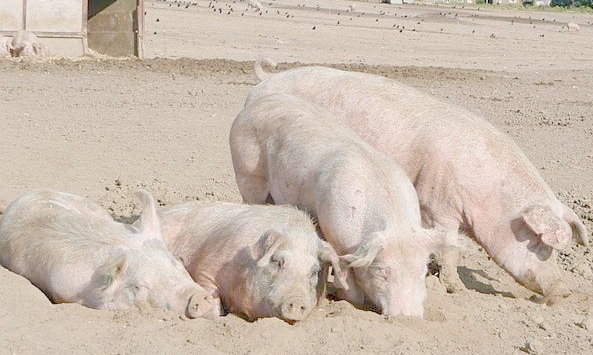
Government scientists have reported the first-ever cases of livestock-associated MRSA in pigs in England.
The finding comes just weeks after scientists in Europe, where MRSA has been present in pigs for a decade, reported that the same strain of livestock-associated MRSA is evolving to become a serious hazard for humans.
Livestock-associated MRSA was first reported in pigs in the Netherlands in 2005, and rapidly spread throughout the European pig population through the trade of live animals. The UK imports few live pigs from Europe, but last year MRSA was found in pigs in Northern Ireland and this is the first-ever case in Great Britain.
Cóilín Nunan, Principal Scientific Adviser to the Alliance to Save Our Antibiotics, said: “In 2007, when Britain’s pig herd was MRSA-free, we called for all imported pigs from MRSA-positive countries to be tested and for the use of the antibiotics most likely to select for the bacteria to be restricted. But Defra refused to take action and now that MRSA-free status has been lost.
"It’s scandalous that Defra still isn’t doing any proper MRSA surveillance of British pigs. Defra’s inactivity on this issue for years has allowed this situation to develop. These cases are likely to only be the tip of the iceberg. MRSA may already be much more widespread in British pigs since most pigs with the bacteria show no visible infection.”
Livestock-associated MRSA can transmit to humans and cause human infections. Farmers and farm workers are most at risk and still account for the majority of cases.
However, in the last year scientists in Germany, Spain, the Netherlands and Denmark have all reported increasing number of cases in people with no direct livestock contact, suggesting the strain is evolving to spread more easily from human to human, a development that scientists have been warning of for years.
In December, French, Swiss and Dutch scientists published genetic evidence that this is now happening. The scientists found that a subpopulation of livestock-associated MRSA has acquired new genes which appear to enable the bacteria to cause more infections in animals and to spread to and infect humans more easily. They said that the strain was now a “serious hazard for humans” which had “the capacity for pandemic spread in humans”. They called for “active surveillance”.
Unlike most European countries, the UK has refused to carry out any active MRSA surveillance of its pig and poultry, other than an EU-mandated survey of pigs in 2008.
The current cases only came to light after an outbreak of skin disease affecting 60 piglets on a farm in eastern England.
Two piglets were tested by Defra scientists and both were MRSA positive. The fact that the piglets were infected by MRSA, and not just carriers of MRSA, means that this could be the more virulent type the European scientists are worried about, although this has not yet been confirmed.
Cóilín Nunan continued: “The latest European research shows that livestock-associated MRSA could become a much bigger public-health threat unless decisive action is taken. In the Netherlands they implemented large reductions in farm antibiotic use and the number of human cases of livestock-associated MRSA is now falling. This shows that restricting farm antibiotic use can have real benefits for human health. The British government should urgently take similar action here.”
